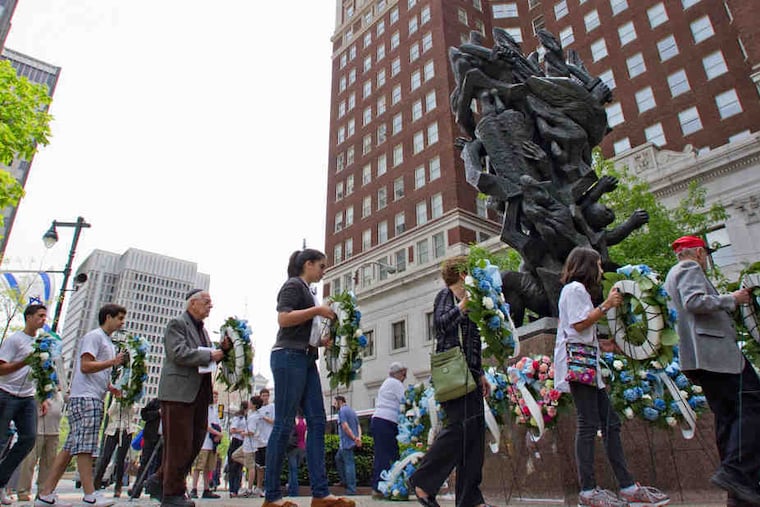Our children are growing up in a renaissance of bigotry | Opinion
What do American schools owe our children – and, by extension, the future of our country?

Philadelphia native Dr. Leon Bass, an American soldier who participated in the liberation of the Buchenwald concentration camp in Nazi Germany, said that there are two key components to challenging bigotry. “One is your education,” he said. “You could become a victim, or you might make someone else a victim in your ignorance. And the other piece of the action is love.”
As we transition from the summer into the school year, many of us are considering what a 21st century American education needs to look like. What do American schools owe our children — and, by extension, the future of our country?
Our children are growing up in a renaissance of bigotry. The Anti-Defamation League (ADL)’s Audit of anti-Semitic Incidents shows that from 2015 to 2018, the number of anti-Semitic incidents grew by 99%, with 29% of these incidents occurring at K-12 schools or on college campuses. And, Jewish people are not the only recipients of such venomous hatred: These incidents occur against a backdrop of rising extremism against people of different identities and backgrounds. We’ve seen white nationalist fliers posted in Northern Liberties, white supremacist recruitment at Temple University, and Nazi imagery etched into the Horwitz-Wasserman Holocaust Memorial Plaza. Our city and our children are not insulated from this growing trend.
What starts out as words can be precursors to life-and-death consequences. Twice in the past year, gunmen have entered Jewish houses of worship on murderous rampages.
Our challenge in curbing this violence is intimately linked to our failure to transmit the lessons of history’s darkest hours. Recent findings from research commissioned by the Claims Conference confirm that 22% of millennials were not confident that they had ever heard of the Holocaust. This comes as no surprise, given that just one in five Americans have visited a Holocaust museum. It is becoming increasingly clear that the universal lessons of the Holocaust are fading from our collective memory.
What can we do to turn the tide? As Bass instructed, we start with two things: education and love. More specifically, we need to educate our children about the Holocaust and other historical tragedies, in a way that helps them to cultivate the compassion and love for humanity needed to fight hatred and bigotry. We link history with empathy and critical thinking — and, we talk to them in a language they can understand.
The Philadelphia Holocaust Remembrance Foundation and the USC Shoah Foundation have teamed up to create a digital learning tool for the Horwitz-Wasserman Holocaust Memorial Plaza. The IWalk app connects the educational features of the Memorial Plaza with Holocaust survivor and witness testimony. IWalk and the Memorial Plaza preserve the voices of those who experienced the Holocaust, bridging the gap in time between these critical perspectives and young people today.
Also, ADL Philadelphia now offers teacher training to extend the reach of the Memorial Plaza and the IWalk app. Teachers leave these workshops with the skills to bring digital Holocaust education into their classrooms.
In his testimony, Bass explained that “Love is not letting people do what they want to do; love is when you challenge people and tell them they’re wrong, even when they’re your best friends.” When we put our children on the bus or drop them off at school, we’re not just expecting that they’ll learn English and math. We’re hoping that their school is equipped to teach them to become stand-up citizens.
It’s up to each one of us to encourage our schools to teach the lessons of history in ways that foster dialogue and understanding.
Eszter Kutas is executive director of Philadelphia Holocaust Remembrance Foundation. Randi Boyette is senior associate regional director of education for Anti-Defamation League Philadelphia.